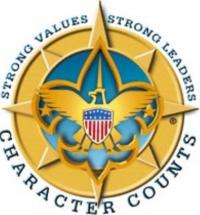 If you are a civics aficionado, this is a very interesting time. We are in the midst of one of the most notable and volatile presidential campaigns in our country’s history. Much is being said on both sides of the debate, and it’s hard to imagine that anyone could not have formed an opinion by now.
If you are a civics aficionado, this is a very interesting time. We are in the midst of one of the most notable and volatile presidential campaigns in our country’s history. Much is being said on both sides of the debate, and it’s hard to imagine that anyone could not have formed an opinion by now.
But how do we form our opinions on matters of such great importance as electing our leaders?
As we prepare to choose who will represent us, in offices ranging from city council to the presidency, each of us looks for many factors in deciding who to support.
Undoubtedly, character is one of the most important of these factors, as it is probably the most reliable predictor of what a person would do in office. It’s not easy to gauge someone else’s character – you have to look for the outward signs that give a glimpse of inner traits. Sometimes these are fairly obvious but they can be quite obscure.
Perhaps the most important thing to examine is our own character, and for us Scouters, what better way is there than to hold character up to the light of the Scout Oath and Scout Law. The twelve points give us some solid benchmarks for comparison and judgment.
Character is examined in a recent book about faith and politics, Public Faith in Action: How to Think Carefully, Engage Wisely, and Vote with Integrity by Miroslav Volf and Ryan McAnnally-Linz. Along with Commitments and Convictions, the authors examine five traits of Character and offer a guide for Christian-based political engagement. It’s not, as you might think, a fundamentalist treatise by any means, but makes frequent references to Bible passages in illustrating human attributes and how they could apply to the political process.
In reading the book, what struck me about the section on Character is how closely many of the points align with the Scout Law. Here are some examples:
- Courage: When you are confronted with risks, your heartbeat might quicken and your hands begin to sweat, and yet you are courageous if you do what love bids you nevertheless. The Scout Law says that A Scout is Brave. A Scout can face danger even if he is afraid, and has the courage to stand for what he thinks is right.
- Humility: Humility isn’t a matter of self-appraisal. Instead, it’s a matter of not worrying about how great you are or whether other people give due deference to your greatness. The Law states that A Scout is Cheerful and Kind. He treats others as he would be treated, looks for the bright side of things and tries to make others happy.
- Respect: It is tempting to disrespectfully prejudge people who take a different side than we do. We fail to see the value of their arguments or the praiseworthiness of their character because we discount them ahead of time as “the enemy.” A Scout is Friendly: A Scout is a friend to all and a brother to every other Scout. He seeks to understand others, and respects those with customs and ideas other than his own.
- Compassion: Compassion matters because humans…are complex wholes – mishmashes of thoughts, emotions, desires, reflexes, and so forth. Right action does not simply follow right thought. It needs the help of emotions. But not just any emotion will do…One such emotion is compassion, which is vital to living faithfully in a world marked by suffering and need. The Scout Oath beseeches us to help other people at all times, and A Scout is Helpful, concerned with other people and doing things willingly for others. A Scout is also Loyal, being true to those around him and with whom he has a relationship.
As Scouters, we help provide a program of fun and adventure to our youth under the umbrella of the Scout Oath and Scout Law. One of the greatest gifts we can give them in the process is to help build men of strong character. It’s one of our aims, and when we ourselves exhibit good character, we demonstrate it for the young people who so desperately need to develop it.
It’s possible that the boy in your den today may grow up to run for President some day in the future, but even if he doesn’t, he has a greater chance of being a person of good character, more able to contribute a positive influence on our society.
This post first appeared on Bobwhite Blather.



